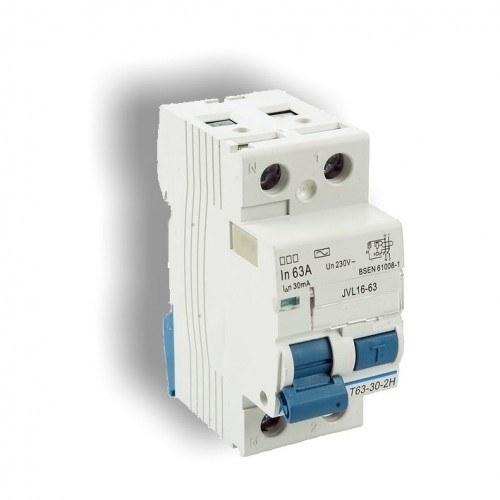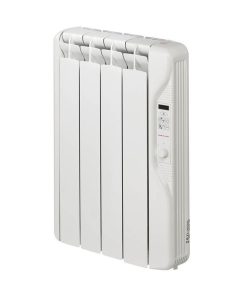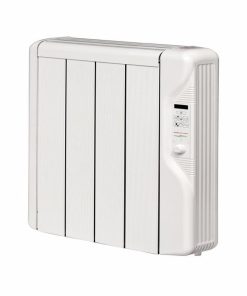100A 2 Pole 2 Module 30mA RCD Trips Protek
$ 31,10 $ 18,66
63A/ 80A/ 100A
Protek’s RCDs are Type AC and conform to BSEN 61008. Tripping is ensured for residual sinusoidal current alternating currents whether the fault is suddenly applied or is a slow rising fault.
RCDs are designed to prevent electrocution by detecting the leakage current, which can be far smaller (typically 5 – 30 milliamperes) than the currents needed to operate conventional circuit breakers or fuses (several amperes). RCDs are intended to operate within 25-40 milliseconds before electric shock can drive the heart into ventricular fibrillation, the most common cause of death through electric shock.
RCDs operate by measuring the current balance between two conductors using a differential current transformer. This measures the difference between the current flowing out the live conductor and that returning through the neutral conductor. If these do not sum to zero, there is a leakage of current to somewhere else (to earth/ground, or to another circuit), and the device will open its contacts.
Residual current detection is complementary to over-current detection. Residual current detection cannot provide protection for overload or short-circuit currents.
- 63A 2 Pole 2 Module 30mA Trip RCD T63-30-2€‹
- 80A 2 Pole 2 Module 30mA Trip RCD T80-30-2
- 100A 2 Pole 2 Module 30mA Trip RCD T100-30-2
Prompt Delivery and Professional Packaging
We are able offer many shipping options thanks to our long-term partnership with UPS FedEx DHL. Our warehouse personnel will pack every item to our exacting specifications. Your products will be subjected to a thorough examination and will be properly packaged prior to being delivered. We deliver to thousands of customers each day in different countries. This shows our commitment to becoming the biggest retailer online in the world. The warehouses are located situated in Europe as much as they are in USA.
Orders that include more than one item are given processing time in accordance with the item.
Before shipping We will inspect thoroughly the items you've purchased. The majority of orders are delivered within 48 hours. Delivery time ranges between 3-7 days.
Returns
Due to the multiple parties involved, including the factory and the warehouse, we're unable to completely manage our stock. Therefore, the actual inventory could fluctuate at any moment. It's possible that your order will become unfulfilled when you have placed the order.
The policy is 30 days. Unfortunately, if thirty days have passed from the date you purchased the item, we cannot provide a refund or exchange.
In order to be eligible for a return your product must be unopened and in the same condition as when you received it. It must also be in the original packaging.
Related products
DIY Materials & Home Improvement
0.5m RJ45 CAT6 UTP Stranded Flush Moulded LS0H Network Cable – 24AWG – Grey Connekt Gear
DIY Materials & Home Improvement
0.5m RJ45 CAT5e UTP Stranded Flush Moulded Network Cable – 24AWG – Blue Connekt Gear
DIY Materials & Home Improvement
0.5m RJ45 CAT6 UTP Stranded Flush Moulded LS0H Network Cable – 24AWG – White Connekt Gear
DIY Materials & Home Improvement
0.3m RJ45 CAT6 UTP Stranded Flush Moulded LS0H Network Cable – 24AWG – Grey Connekt Gear
DIY Materials & Home Improvement
0.5m RJ45 CAT6 UTP Stranded Flush Moulded LS0H Network Cable – 24AWG – Black Connekt Gear
DIY Materials & Home Improvement
0.5m RJ45 CAT6 UTP Stranded Flush Moulded LS0H Network Cable – 24AWG – Grey Connekt Gear
DIY Materials & Home Improvement
0.5m RJ45 CAT6 UTP Stranded Flush Moulded LS0H Network Cable – 24AWG – Green Connekt Gear
DIY Materials & Home Improvement
0.3m RJ45 CAT6 UTP Stranded Flush Moulded LS0H Network Cable – 24AWG – Yellow Connekt Gear
DIY Materials & Home Improvement
0.5m RJ45 CAT5e UTP Stranded Flush Moulded Network Cable – 24AWG – Black Connekt Gear
DIY Materials & Home Improvement
0.5m RJ45 CAT6 UTP Stranded Flush Moulded LS0H Network Cable – 24AWG – Green Connekt Gear
DIY Materials & Home Improvement
0.3m RJ45 CAT6 UTP Stranded Flush Moulded LS0H Network Cable – 24AWG – Yellow Connekt Gear
DIY Materials & Home Improvement
0.5m RJ45 CAT5e UTP Stranded Flush Moulded Network Cable – 24AWG – Orange Connekt Gear
DIY Materials & Home Improvement
0.5kW 24 Hour Digital 4 Module Oil Filled Electric Panel Radiator Heater Elnur
DIY Materials & Home Improvement
0.3m RJ45 CAT6 UTP Stranded Flush Moulded LS0H Network Cable – 24AWG – Green Connekt Gear
DIY Materials & Home Improvement
0.5m RJ45 CAT5e UTP Stranded Flush Moulded Network Cable – 24AWG – Pink Connekt Gear
DIY Materials & Home Improvement
0.5kW 24 Hour Digital 4 Module Oil Free Thermal Electric Panel Radiator Heater Elnur
DIY Materials & Home Improvement
0.5m RJ45 CAT6 UTP Stranded Flush Moulded LS0H Network Cable – 24AWG – Orange Connekt Gear
DIY Materials & Home Improvement
0.3m RJ45 CAT6 UTP Stranded Flush Moulded LS0H Network Cable – 24AWG – Orange Connekt Gear
DIY Materials & Home Improvement
0.5m RJ45 CAT6 UTP Stranded Flush Moulded LS0H Network Cable – 24AWG – Blue Connekt Gear
DIY Materials & Home Improvement
0.3m RJ45 CAT6 UTP Stranded Flush Moulded LS0H Network Cable – 24AWG – Grey Connekt Gear
DIY Materials & Home Improvement
0.5m RJ45 CAT6 UTP Stranded Flush Moulded LS0H Network Cable – 24AWG – Red Connekt Gear
DIY Materials & Home Improvement
0.5m RJ45 CAT6 UTP Stranded Flush Moulded LS0H Network Cable – 24AWG – Red Connekt Gear
DIY Materials & Home Improvement
0.5m RJ45 CAT6 UTP Stranded Flush Moulded LS0H Network Cable – 24AWG – Purple Connekt Gear
DIY Materials & Home Improvement
0.5m RJ45 CAT5e UTP Stranded Flush Moulded Network Cable – 24AWG – Pink Connekt Gear
DIY Materials & Home Improvement
0.3m RJ45 CAT6 UTP Stranded Flush Moulded LS0H Network Cable – 24AWG – Red Connekt Gear
DIY Materials & Home Improvement
0.5m RJ45 CAT5e UTP Stranded Flush Moulded Network Cable – 24AWG – Blue Connekt Gear
DIY Materials & Home Improvement
0.5m RJ45 CAT6 UTP Stranded Flush Moulded LS0H Network Cable – 24AWG – Black Connekt Gear
DIY Materials & Home Improvement
0.5m RJ45 CAT5e UTP Stranded Flush Moulded Network Cable – 24AWG – Yellow Connekt Gear
DIY Materials & Home Improvement
0.5m RJ45 CAT6 UTP Stranded Flush Moulded LS0H Network Cable – 24AWG – Blue Connekt Gear
DIY Materials & Home Improvement
0.5m RJ45 CAT5e UTP Stranded Flush Moulded Network Cable – 24AWG – Grey Connekt Gear
DIY Materials & Home Improvement
0.5m RJ45 CAT5e UTP Stranded Flush Moulded Network Cable – 24AWG – White Connekt Gear
DIY Materials & Home Improvement
0.5m RJ45 CAT6 UTP Stranded Flush Moulded LS0H Network Cable – 24AWG – Purple Connekt Gear




































